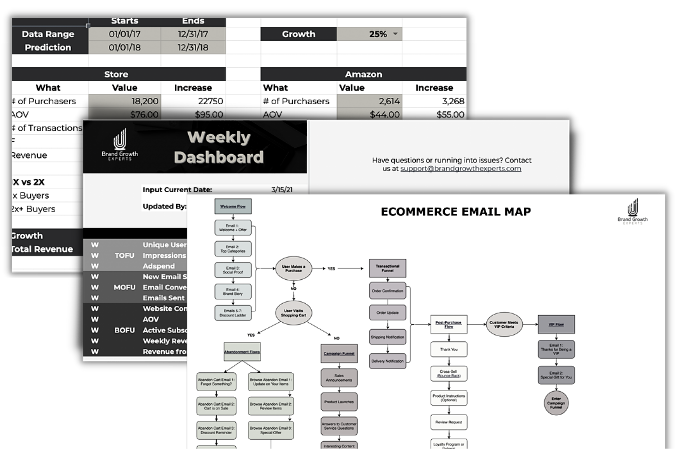141: What it takes to build & scale a $100M lifestyle brand with Jake Kassan
Do you want to know what it really takes to build a $100 million business and brand? Then this episode is for you.
Posted by: Austin Brawner on May 03, 2018
Why pay attention to Google Analytics?
Yehoshua points out that an eCommerce business owner can’t afford to not pay attention to Google Analytics, as it helps companies to think strategically about their goals, get good data to work with, and then dig into that data to gain insights. In short, you need data to set goals for improvement and then meet those goals by making thoughtful business decisions.
What should you be tracking for your business?
And on a daily/weekly/monthly basis:
Daily: Make sure nothing is out of whack. Check your Adwords spend and traffic. Look for strong changes in number of transactions or traffic sources. You can set custom alerts for some of these actions.
Weekly: Same as daily, and also spend a little more time looking at merchandising performance.
Monthly: Take a deep dive into landing page performance and measuring SEO.
What is propensity to buy?
Propensity to buy amounts to the following: how often are people viewing a product, how often they’re adding it to their cart based on that view, and how often they’re completing the purchase.
Yehoshua points out that an even better metric to look at is propensity for profit by product category or brand. He notes that the easiest way to take action on this data is to boost your ad spend accordingly to support those profitable products. He also recommends uploading your cost data (i.e. impressions, clicks and costs) to Google Analytics, and then using their tools to figure out where to invest your money.
Google Analytics is a wonderful tool, but it’s still just a tool. In other words, keep in mind that data in itself is worthless – there’s only value in how you use that data. It’s all about strategy and process, so figure out how to ask smart questions and find good answers.

Enter your email to get our proven resources that will help you achieve massive growth without the burnout.